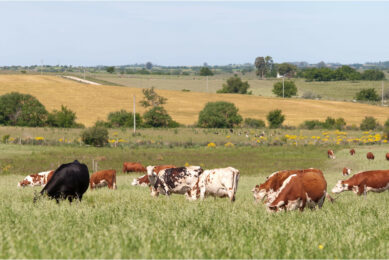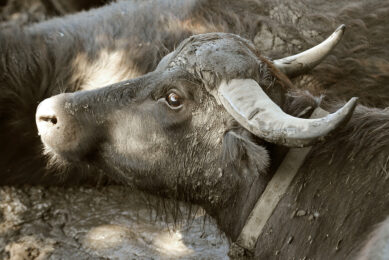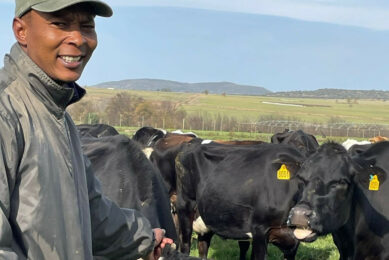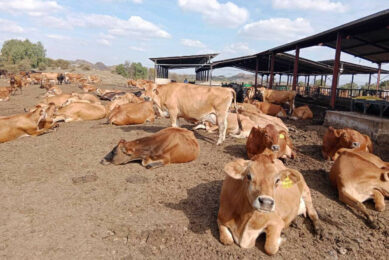South Africa battles Foot and Mouth Disease
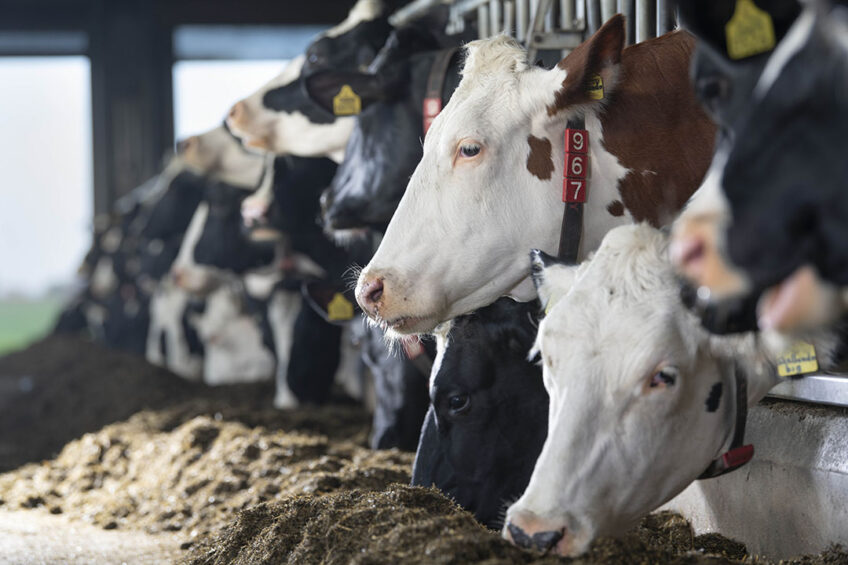
South Africa is one of the recent countries caught up in the battle to control Foot and Mouth Disease. The government is fighting to restore an FMD-free status, following the loss of the OIE recognised FMD-free status in January 2019.
According to a GAIN report, on April 11 2022, the Minister of Agriculture, Land Reform and Rural Development (DALRRD) announced that the country is battling 56 outbreak cases of the Foot and Mouth Disease (FMD) involving farms and communal areas in the Free State, KwaZulu-Natal, Limpopo, North West, and Gauteng provinces. The outbreaks are reported to have been caused by illegal movements of animals out of the FMD-controlled zones in Limpopo.
The outbreak in Limpopo was caused by a SAT 3 virus. This outbreak is most likely due to spill-over from an outbreak in the adjacent FMD Protection zone, which was detected in March 2021 where 28 outbreaks were reported. In KwaZulu Natal, the virus responsible for the outbreak is a SAT 2 serotype and is closely related to a SAT 2 virus responsible for an outbreak that occurred in the Protection Zone in northern Limpopo in 2019. Further analysis confirmed that the same SAT 3 virus in Limpopo province is responsible for the outbreaks in the Free State, North West, and Gauteng provinces.
In a briefing, the Minister of Agriculture, Land Reform and Rural Development, Thoko Didiza, reminded the nation that it is illegal to move cloven-hoofed animals and their products out of the FMD protection zone without permission from the state veterinary services. “I call on all citizens of South Africa to stop the illegal movement of animals out of FMD affected areas. The damages caused by continued FMD outbreaks have a severe negative impact on the economy of the country, as well as the individual animal owners,” she said.
Control efforts
All affected farms, dip tanks, and other premises in the 5 affected provinces were placed under quarantine and no cloven-hoofed animals are allowed to move from these locations. There has been no change in the movement restrictions on cloven-hoofed animals, their products, and genetic material out of, into, within, or through the Disease Management Areas, which are still in effect in KwaZulu-Natal and Limpopo.
Serological and clinical surveillance is ongoing to determine the extent of the spread of the disease. Roadblocks and veterinary patrols continue to monitor the movements of animals within, through, and out of the DMA.
A vaccination campaign commenced on 15 March 2022 in the areas where there appears to be active virus circulation. Culling, like all control measures, is being considered on a case-by-case basis, considering the practicality, costs, advantages, and disadvantages of each scenario. The DMA was initially gazetted in the KwaZulu-Natal province on 30 June 2021, but following the resurgence of the outbreaks in January 2022, and the subsequent spread of the disease, the margin of the DMA is being reconsidered.
The Minister of Agriculture emphasized maximum cooperation from all stakeholders in the sector to achieve effective control of the outbreaks. “It is important that everyone commits and respects all imposed control measures and collectively find a sustainable solution,” said Didiza.
Trade implications
Following the loss of the OIE recognized FMD-free status in January 2019, the Department of Agriculture negotiated agreements with trading partners on the export of safe commodities, including heat-treated meat and dairy products, among others. Most trade partners are still sticking with these agreements, based on the guarantees provided for processing to ensure the inactivation of the virus.
However, not everyone is complying. For example, due to the recent FMD outbreak, China (on 6 April 2022) has announced a restriction on the importation of all cloven-hoofed animals and their products from South Africa’s 5 affected provinces. Meanwhile, on 24 March 2022, Mozambique suspended imports of cattle, goats, sheep, pigs, their meat and by-products, plus wild cloven-hoofed ruminants, and fodder for feeding cattle from South Africa. The ban covers products from South Africa’s North West, Limpopo, and KwaZulu-Natal provinces.
It remains to be seen how fast the country will take full control of the disease, and to what extent will it affect its economy.



